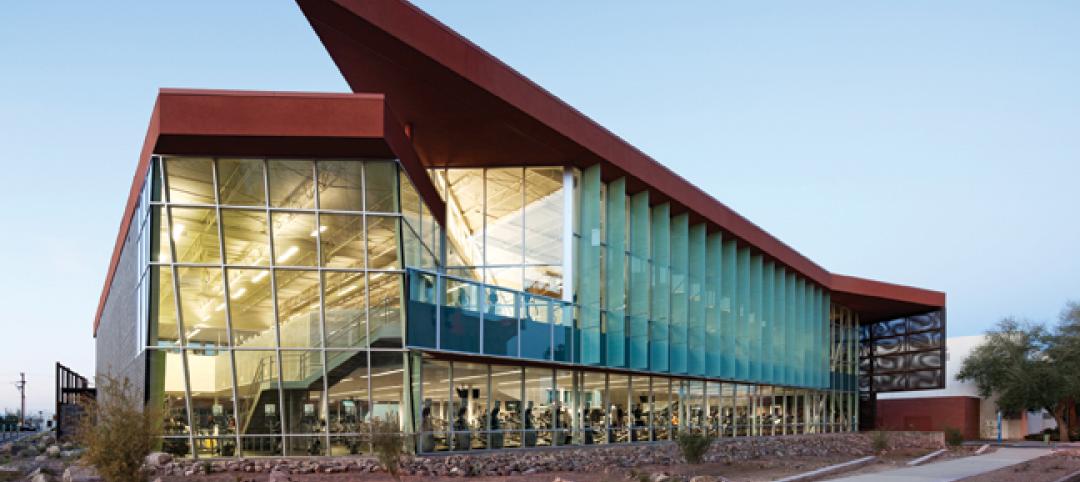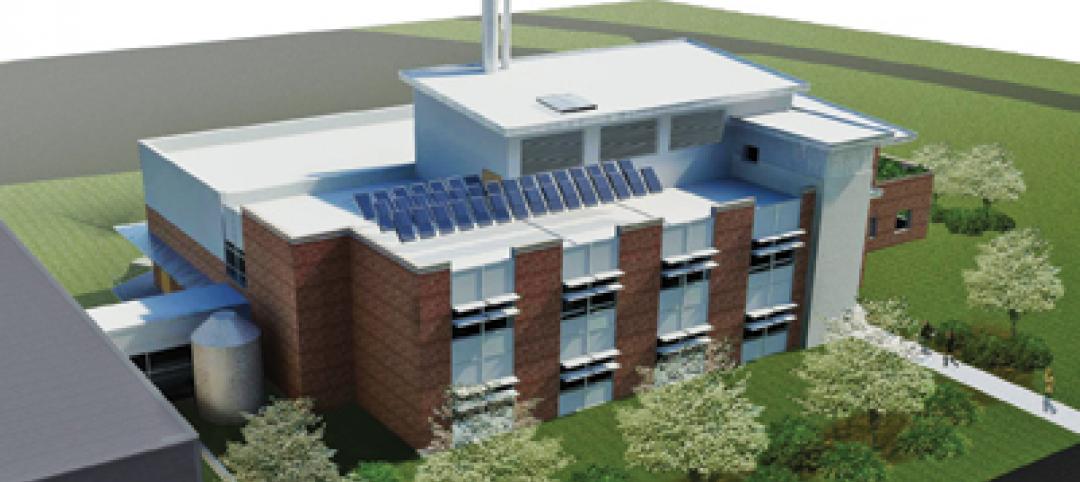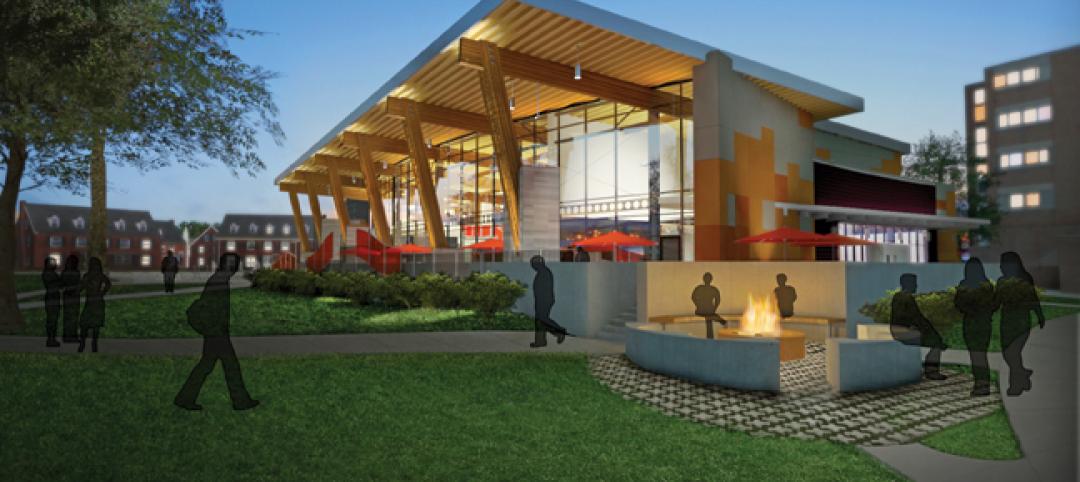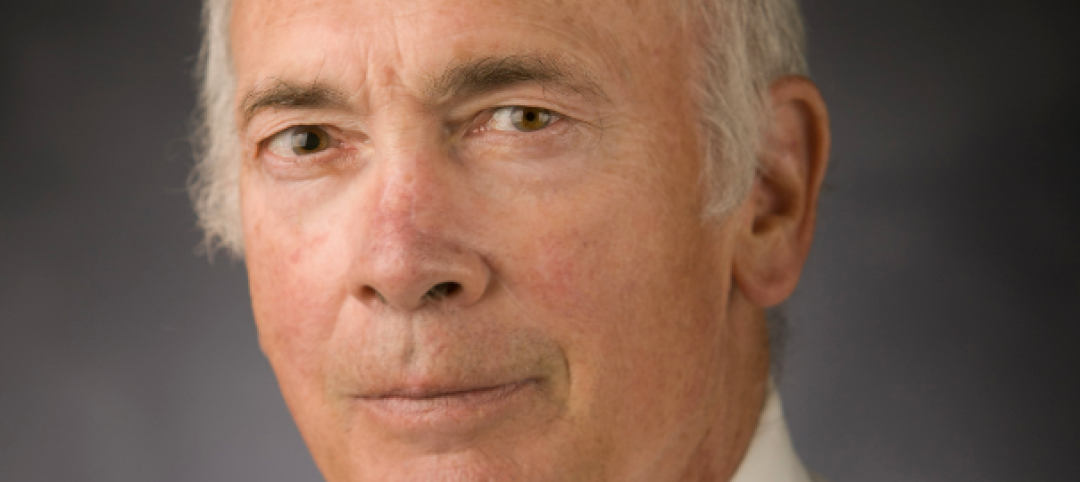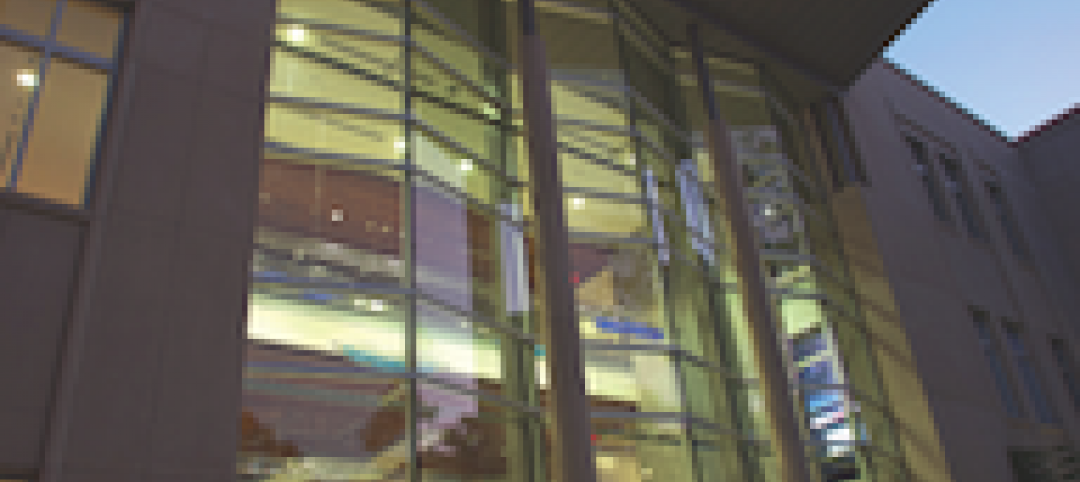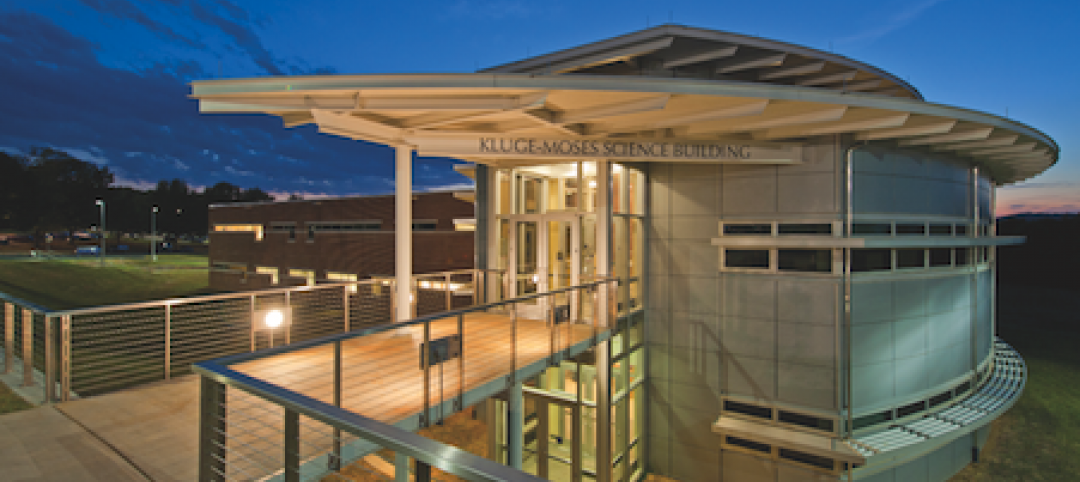The national general contractor Suffolk has had a longstanding relationship with the University of Massachusetts. Over the years it has built nine residential facilities on that institution’s 9,000-student campus at North Dartmouth, Mass., between Providence and Cape Cod, including the 800-bed Pine Dale and Oak Glen halls, and the 1,200-bed Woodland apartment complex.
Last month, the partners broke ground on a $134 million housing and dining complex on Parking Lot 7 near the university’s Campus Center and College of Visual and Performing Arts.
The project, when completed in the fall of 2020, will replace four residence halls that opened in 1976. It includes a 1,210-bed, 267,000-sf housing complex in two buildings, with an estimated cost of $108 million. These facilities will have classrooms, multimedia and study lounges, demonstration kitchens, and recreational spaces. A technology equipped maker space will enable students to work in groups. The buildings will also have soundproof music practice rooms and two computer learning commons.
The housing builldings will flank a $26 million, 38,000-sf student dining commons with an 800-person capacity, which replaces the university’s main dining hall built in 1977. Its design includes a large flat top grill where students can see their meals being prepared.
“Our team has worked in collaboration with the University from the beginning and we are excited to deliver a facility that will meet the unique needs of their students and faculty for decades to come,” says Randy Kreie, Principal and President of DiMella Shaffer, the construction’s design architect.
The residence halls are being built through a private-public partnership between the university and Greystar, which specializes in housing development and management. No state taxpayer funds will be used, and the project won’t add to the university’s debt. (The project is being financed through the UMass Building Authority.)
This is the first major state-funded building project on this campus since 1980, and represents the first phase of Chancellor Robert E. Johnson’s plan to focus capital investment on the 710-acre UMass Dartmouth main campus. (As part of the current project’s overall scope, the campus’s Science and Engineering Building is undergoing a $54 million renovation that is partly financed by $25 million in state funds.) Future initiatives will include renovation and modernization of academic buildings, the campus center, road infrastructure, and athletic facilities.
“We know from studies and our own extensive experience that providing high-quality living-learning environments for students increases graduation rates, retention rates and academic performance,” says UMass President Marty Meehan. “This project represents an investment in student success and student opportunity at UMass Dartmouth, which by extension will benefit the SouthCoast and the entire Commonwealth.”
Related Stories
| Nov 9, 2010
Designing a library? Don’t focus on books
How do you design a library when print books are no longer its core business? Turn them into massive study halls. That’s what designers did at the University of Amsterdam, where they transformed the existing 27,000-sf library into a study center—without any visible books. About 2,000 students visit the facility daily and encounter workspaces instead of stacks.
| Nov 3, 2010
First of three green labs opens at Iowa State University
Designed by ZGF Architects, in association with OPN Architects, the Biorenewable Research Laboratory on the Ames campus of Iowa State University is the first of three projects completed as part of the school’s Biorenewables Complex. The 71,800-sf LEED Gold project is one of three wings that will make up the 210,000-sf complex.
| Nov 3, 2010
Seattle University’s expanded library trying for LEED Gold
Pfeiffer Partners Architects, in collaboration with Mithun Architects, programmed, planned, and designed the $55 million renovation and expansion of Lemieux Library and McGoldrick Learning Commons at Seattle University. The LEED-Gold-designed facility’s green features include daylighting, sustainable and recycled materials, and a rain garden.
| Nov 3, 2010
Recreation center targets student health, earns LEED Platinum
Not only is the student recreation center at the University of Arizona, Tucson, the hub of student life but its new 54,000-sf addition is also super-green, having recently attained LEED Platinum certification.
| Nov 3, 2010
Virginia biofuel research center moving along
The Sustainable Energy Technology Center has broken ground in October on the Danville, Va., campus of the Institute for Advanced Learning and Research. The 25,000-sf facility will be used to develop enhanced bio-based fuels, and will house research laboratories, support labs, graduate student research space, and faculty offices. Rainwater harvesting, a vegetated roof, low-VOC and recycled materials, photovoltaic panels, high-efficiency plumbing fixtures and water-saving systems, and LED light fixtures will be deployed. Dewberry served as lead architect, with Lord Aeck & Sargent serving as laboratory designer and sustainability consultant. Perigon Engineering consulted on high-bay process labs. New Atlantic Contracting is building the facility.
| Nov 3, 2010
Dining center cooks up LEED Platinum rating
Students at Bowling Green State University in Ohio will be eating in a new LEED Platinum multiuse dining center next fall. The 30,000-sf McDonald Dining Center will have a 700-seat main dining room, a quick-service restaurant, retail space, and multiple areas for students to gather inside and out, including a fire pit and several patios—one of them on the rooftop.
| Nov 1, 2010
John Pearce: First thing I tell designers: Do your homework!
John Pearce, FAIA, University Architect at Duke University, Durham, N.C., tells BD+C’s Robert Cassidy about the school’s construction plans and sustainability efforts, how to land work at Duke, and why he’s proceeding with caution when it comes to BIM.
| Oct 13, 2010
Editorial
The AEC industry shares a widespread obsession with the new. New is fresh. New is youthful. New is cool. But “old” or “slightly used” can be financially profitable and professionally rewarding, too.
| Oct 13, 2010
Campus building gives students a taste of the business world
William R. Hough Hall is the new home of the Warrington College of Business Administration at the University of Florida in Gainesville. The $17.6 million, 70,000-sf building gives students access to the latest technology, including a lab that simulates the stock exchange.
| Oct 13, 2010
Science building supports enrollment increases
The new Kluge-Moses Science Building at Piedmont Virginia Community College, in Charlottesville, is part of a campus update designed and managed by the Lukmire Partnership. The 34,000-sf building is designed to be both a focal point of the college and a recruitment mechanism to get more students enrolling in healthcare programs.






